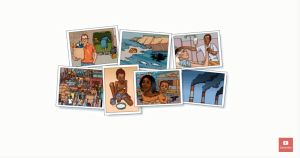The 1987 Bruntland Commission Report refers to sustainable development as “development that meets the needs of the present without compromising the ability of future generations to meet their own needs.”
If you have followed Carbonbit for a while you may remember my series on the 17 Sustainable Development Goals (SDGs), set out by the United Nations in 2015 and were adopted by 193 countries. If you are new here, let me help you understand what these SDGs really are!
The SDGs are 17 goals which address economic, environmental, and social impacts. Each of the 17 goals aim to reach their targets by 2030. These goals are a call to action to ALL countries. They cover many issues such as: poverty, gender equality, sustainable cities and communities, affordable and clean energy, climate action and peace & justice.
For example, we now see that COVID-19 has led to the first rise in extreme poverty in a generation. An additional 119-124 million people were pushed back into extreme poverty in 2020. Since the pandemic an additional 70-161 million people are faced with hunger.
The SDGs help focus our attention on these issues.
There are 4 key principles surrounding the SDGs:
Universality: the goals are global in nature and universally applicable. Including all levels of countries development and respecting national policies and priorities.
Integration: the goals must balance and integrate the social, environmental, and economic dimensions of all countries.
Human rights & equality: the goals should achieve basic levels of goods and services for all; better distribution of wealth and resources and equal access to opportunities.
Innovation: the goals should have innovative pathways are needed to allow countries to move forward towards a more sustainable future.
So you can understand why adopting SDGs is essential to help create a more sustainable, equitable and prosperous world.

